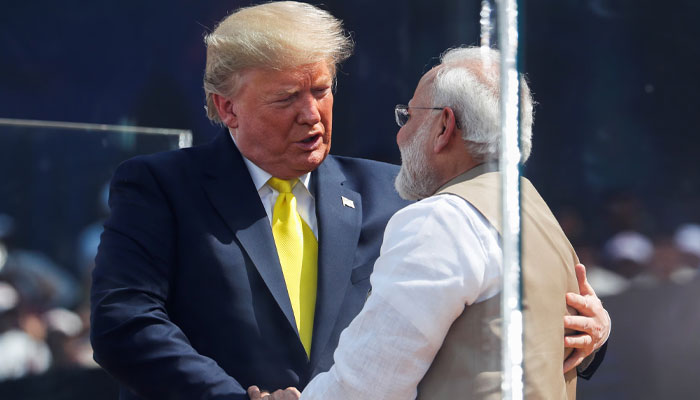NEW DELHI: In its Union Budget for 2025-26, India has substantially reduced customs duties on premium motorcycles, cars, and smartphone components. This development appears advantageous for American companies such as Harley-Davidson, Tesla, and Apple, following remarks by US President Donald Trump describing New Delhi as a “tremendous tariff maker.”
Nonetheless, Finance Minister Nirmala Sitharaman stated that the adjustment of customs duties is aimed at promoting self-reliance within the Indian economy and is not a reaction to Trump’s tariff announcements.
“We are focusing on our own economy and aiming to fortify the foundations of the Indian economy to transform it into a manufacturing hub,” she asserted.
During her budget presentation on Saturday, Ms. Sitharaman disclosed a reduction in import duties for high-end motorcycles, with engine capacities up to 1,600cc imported as completely built-up (CBU) units, from 50 per cent to 40 per cent.
According to the Union Budget for 2025-26, the import duty on semi-knocked down (SKD) kits has decreased to 20 per cent from 25 per cent. Furthermore, completely knocked down (CKD) units will now incur a tax of 10 per cent, down from 15 per cent.
This shift is set to enhance the import of quintessentially American Harley-Davidson motorcycles into India, as the previous high tariffs have been a longstanding issue between India and the US.
Harley-Davidson began its journey in India in 2010, following the “mangoes for motorcycles” agreement established between India and the US in 2007. However, the American motorcycle manufacturer withdrew from the Indian market about ten years later, in September 2020, as part of broader downsizing efforts.
Nonetheless, a month later, Harley-Davidson re-entered the Indian market after Hero MotoCorp Ltd formed a non-equity partnership with the American brand to manufacture and distribute its motorcycles in India. Currently, Hero MotoCorp produces and sells the Harley-Davidson 440X, the smallest model in the brand’s lineup.
During his first term in office, Trump raised concerns regarding the 50 per cent import duty on Harley Davidson motorcycles, deeming it “unacceptable.”
Separately, Ms. Sitharaman announced that the tariff on luxury cars, including station wagons and racecars valued over $40,000, has been reduced from 125 per cent to 70 per cent. Additionally, the basic customs duties on lithium-ion batteries used in electric vehicles in India have been eliminated.
Most of the aforementioned EV manufacturers are already operational in India, developing vehicles tailored for the Indian market. However, this move could serve as a lure for American companies like Tesla, which is keenly observing the expanding Indian EV landscape.
In April 2024, Tesla CEO Elon Musk planned a visit to India to meet PM Modi, fueling speculation about potential investments in the country. However, he canceled the trip due to “very heavy Tesla obligations.”
In the 2025-26 budget, Ms. Sitharaman confirmed that customs duties on 28 items related to mobile phone battery production from countries such as the US and China have been waived. This initiative aims to lower the cost of mobile phones and accessories in India while bolstering local production, particularly as India progresses towards becoming the world’s second-largest mobile phone manufacturer.
Apple stands to gain significantly from these reductions in import taxes. A report from Reuters indicates that Apple secured a 23 per cent share of total revenue in 2024.
As US President Trump advocates for prioritizing domestic industry under his “America First” trade policy, India’s recent adjustments to import taxes are perceived as a strong signal to the American administration, seeking assurance against increased taxes or additional trade barriers directed at Indian goods.
Previously, Trump asserted that India imposes the highest tariffs on foreign items compared to major economies and threatened to enforce reciprocal tariffs on Indian products. He also warned of 100% tariffs on BRICS nations, including India, if they moved away from the US dollar.
Speculation arises that with the tax reductions on imports, India aims to capitalize on the US-China trade conflict and augment its own presence in global supply chains. Trump’s tariffs are becoming disruptive to global trade, creating uncertainty in the market. With the import tax reductions, India should be better positioned to navigate a potentially unpredictable year, as reported by Reuters.


